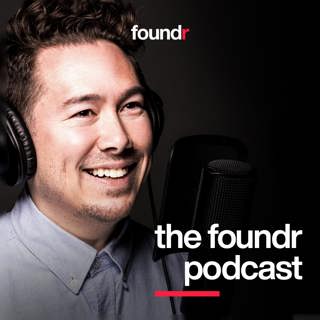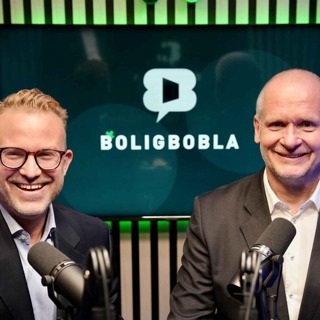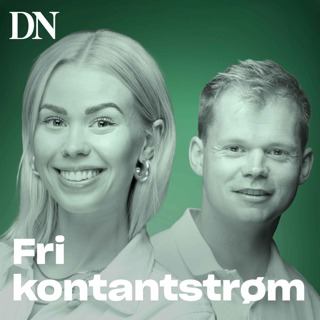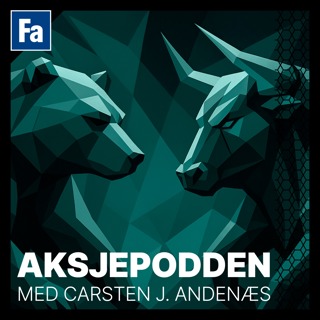
335: From 0 to $65m: With Farmgirl Flowers' Christina Stembel
Faced with 104 rejections, zero-funding, and the prospect of launching a new business during an economic downturn, Christina Stembel has not only grown her company Farmgirl Flowers to a $65m empire, she has also done it completely bootstrapped. Stembel’s journey from bootstrap to business mogul is nothing short of inspiring. What began as $46k savings and a 2-year window to achieve her goal, her ecommerce flower business saw 5x growth in the first 2 years. As Stembel says, “the fact that I was able to bootstrap without running out of money is the biggest accomplishment of my life” In this interview, listen in to discover how Stembel marketed and advertised her brand on a shoestring budget, the importance of word-of-mouth and how that helped her achieve her first million, and why she views FarmGirl Flowers as the workhorse among unicorns. Key Takeaways How Stembel started FarmGirl Flowers, and why she gave herself 2 years Marketing on a shoestring budget Complications she faced selling perishable products Why she views FarmGirl Flowers as a workhorse among unicorns The importance of product-quality, and why she believes that a good quality product will outsell any level of marketing The future of FarmGirl Flowers and reaching her first billion
1 Des 202058min

334: What This Tech Pioneer Is Betting On Next | Matt Mullenweg Of Wordpress
As someone who has pioneered the tech industry with his open-source software, and boasts 38% of the internet using his product, Matt Mullenweg is still one of the most humble and inspiring entrepreneurs we’ve ever met. In this insightful interview, Mullenweg discusses the biggest challenges faced by companies today, and the importance of looking after your team and people. As a company that has operated remotely since it’s beginnings, Mullenweg stresses the importance of team-building, and why he took his entire company to Disneyland. Mullenweg touches on some key issues faced by entrepreneurs the worldover - chronic dissatisfaction in progress, and that whatever you do is never enough. He says instead of saying to yourself that it’s not enough, entrepreneurs need to say “it is enough, and there’s more to do!” From the acquisition of powerhouses such as Tumblr, WooCommerce, and his dedication to supporting others, Mullenweg discusses his life’s plan to create as much open-source software as possible and encourage creativity across the globe. This interview will leave a smile on your face and give you the motivation and drive to work towards a better future for all. Key Takeaways How Mullenweg founded WordPress, and operating as a remote-working business in the early 2000s Mullenweg’s beliefs on company culture and the importance of in-person team-building activities especially for remote workers The future of the office and why he believes it will be obsolete post-Covid Mullenweg reveals that as an angel investor, the key things he looks for in a business or founder The future of web development and WordPress The biggest challenges faced by companies today and the importance of looking after your team and people Chronic dissatisfaction as a founder and why needs to become a more positive drive
24 Nov 202046min

333: The Top Mistakes to Avoid when Managing Remote Teams with Fibre HR Foundr Lisa Spiden
In this week’s Foundr podcast interview, Nathan Chan sits down with Lisa Spiden, CEO of Workforce Analytics and Foundr of Fibre HR to discuss everything a team leader needs to embody in order to help their team do their best work. Spiden discusses key tactics and methods that team leaders can adopt to help lead their teams through any crisis. Not only does this mean offering support for them during the work-from-home culture shift, but also taking the time to understand and adapt for each individual's needs and workflow. With something for every team leader, this interview will help you to understand how to build a culture within your team, hiring strategies, and top-talent selection. Key Takeaways How Spiden found herself working in HR, and the origins of Fibre HR and Workforce Analytics Spiden discusses tactics to keep team morale high during forced WFH Why staff motivation is the key to staff retention Team standups, retros, and other remote team bonding exercises Addressing top-talent selection, and whether pro-culture or pro-skills is best for your business Building a great culture inside and office, and how to build on it strategically Understanding what your team wants, what drives them, what motivates them
17 Nov 202041min

332: $16 million a month: The Secret To Success Using Facebook Ads with Nick Shackelford
Ever wondered how the elite pros do Facebook ads? This week’s interview with course instructor Nick Shackelford is just that: a no-holding back, all inclusive, step-by-step discussion on running successful Facebook ads. Returning again to Foundr’s exclusive podcast, Shackelford discusses his learnings on media buying, running facebook ads that convert, and exactly what he learned from spending a ridiculous amount of money on fb ads. This interview dives deep into the nitty-gritty of all the lessons Shackelford learned doing media buying for Apple, including the budgets he worked on for the launch of the iPhone 7, iPad Pro, and the Apple Watch (and we are talking huge budgets). Shackelford also discusses how he single-handedly popularized the Fidget Spinner by using Facebook Ads, and how he started his own agency, Structured Social. In this interview, not only will you discover why Shackelford’s Structured spends close to $20million per month on Facebook ads, you’ll also hear first-hand tips and strategies to success in FB ads within the hardest markets, across all GEOS, for every product or service. This is an episode you cannot miss! Key Takeaways How Shackelford first found his way into the industry Working for Apple and what he learned from running $100 million Facebook ads The rise of the fidget spinner, $1m run rate in the first month, and the importance of opportunity How Shackelford has built Structure Social, and now spends close to $20million a month and has over 50 employees The biggest lessons he has learned over the years, including the intricacies of media buying, copywriting, positioning, and creative Why you only have 3-seconds to make an impression with your ad Shackelford’s key advice for those looking to grow their business through Facebook ads
10 Nov 20201h 4min

331: Mastering Your Mindset and Achieving Success with Andy Frisella of 1st Phorm
Mental toughness isn’t something you’re born with, it’s something you learn and practice and develop over time. And Andy Frisella is living proof of that. The Founder of 1st Phorm, the “Real AF podcast host”, 75Hard program creator, and all around badass Andy Frisella knows discipline and mindset, and isn’t afraid to tell it like it is. It’s no secret that Foundr is a huge fan of Frisella’s work with developing mental toughness and discipline (in fact, most of our team has completed his 75Hard challenge!) and after listening to this interview, you’ll be a fan too. Frisella is raw, real, and straight to the point with everything he believes in with mental health, building a brand, company values, and aspiring to become the best version of yourself possible. Key Takeaways Frisella discusses how he has always been an entrepreneur at heart Frisella reflects on how he began his first business, the struggles, the journey, and how he stayed focussed Company values and how Frisella recognises greatness and celebrates it within his team The importance of being a good leader and why you need to communicate values with your team Why Frisella still compares himself to others above him, and why this is a driving force in success The struggle of finding the right support at high-levels of success How to push through discipline blocks and shake off burnout The evolution of 75Hard and what Frisella is most excited for as a legacy
3 Nov 20201h 6min

330: The 4 Questions You Need To Be Asking To Make Better Decisions: Kickstarter Co-Founder and Author Yancey Strickler
Yancey Strickler, Author and Kickstarter Co-Founder In this inspiring podcast interview, Nathan Chan sits down with Kickstarter co-founder and author Yancey Strickler to discuss his 'Bento Box' method for making better decisions, how his company Kickstarter found it’s feet, and our unhealthy obsession with “financial maximization”. Strickler was working as a music journalist in New York when a chance encounter with future co-founder Perry Chen in a restaurant led to the creation of Kickstarter, and crowdfunding as a category-defining player in a new field. A writer at heart, Stickler used his time post-Kickstarter to write the groundbreaking This Could Be Our Future. An in-depth look at our current obsession with financial gain, and how society has conditioned us to always choose whatever will make the most money. Making the right choices in life is a mission close to Strickler’s heart. As such, he created the revolutionary “Bento Box” framework, an inspiring and humbling process for individuals and businesses alike to frame and structure their decisions. This podcast is one of our most inspiring insights into human nature and the importance of caring for our future selves and our future business. Learn from Strickler as he gives you the secret Bento Box method to help you make the right decisions in life. This is a conversation you won’t want to miss! Key Takeaways Strickler discusses how the idea for Kickstarter came about in 2005 while working in the music industry Why it took Strickler close to 4 years for the idea to be executed The conscious decision to frame Kickstarter as a funding method for passion projects and new ideas rather than a charity platform Why Kickstarter was originally called “Kickstartr” Pitching the idea of Kickstarter and the initial investors, and getting Andy Baio onboard with the project How they went from unpaid developers to profitability in 14 months The effect of being a category-defining player in a new field Stepping down from his position at Kickstarter Strickler’s new book “This Could Be Our Future” and our current obsession with Financial Maximisation: whatever makes the most money is the right decision Strickler’s Bento Framework Now Me: profitability Future Me: as a business, your values Now Us: stakeholders, employees, suppliers, etc. Future Us: the bigger idea of what you want to be Key Resources From Our Interview https://www.ystrickler.com/book
27 Okt 20201h 5min

329: Why You Don't Need a Mentor & Key Traits EVERY Successful Founder Should Have with Kamal Ravikant
Kamal Ravikant, Author and Founder, Venture Capitalist In this special podcast interview, Nathan Chan sits down with renowned author and founder Kamal Ravikant to discuss his thoughts on mentorship, entrepreneurs, and everything in between. Ravikant traces his journey back to a point in time most entrepreneurs face: he was doing too much and he was burnt out. In fact, it took losing everything for him to realize what he needed to change: his mindset. Throughout his journey, the ups and downs, the lows and highs, Ravikant is a master of maintaining a balance between persistence and open-mindedness in everything he does. Listen in as Ravikant discloses the powerful reason he chose to write his bestselling book: 'Love Yourself Like Your Life Depends on It', and how the book developed from a self-published book to a global success spreading joy and love published in 16 languages. This podcast is raw, honest, and a deep insight into personal growth. Learn from Ravikant as he discloses the universal importance of loving yourself, being humble, and caring deeply. This is a conversation you won’t want to miss! Key Takeaways Ravikant holds the honor of being the fourth ever podcast interview by Foundr back in 2014 His beginnings riding the wave of the internet boom Why it took losing everything to realize he needed to change his mindset His ideology that you should build a business by identifying a problem and creating a solution first The power investors hold over entrepreneurs, and what drove him to become a doer Why he believes in having a strong entrepreneur mindset His re-launch of the global bestseller Love Yourself Like Your Life Depends On It published in 16 languages worldwide Ravikant discusses his upcoming projects and behind-the-scenes of funds Ravikant addresses the changes in Silicon Valley, and what advice he would give to upcoming entrepreneurs Why you need to be humble and care deeply, always.
20 Okt 20201h 1min

328: Building a $50M Underwear Empire off $20K with Joanna Griffiths from KNIX
Joanna Griffiths CEO Knixwear CEO of global intimates brand Knixwear Joanna Griffiths sits down with Nathan Chan to reveal how she took $20k to and made $50m in revenue last year. In this wonderfully inspiring episode, Griffiths’ discusses how she became an “accidental entrepreneur” with Knixwear. Initially begun as a passion project to create high-quality leak-proof intimates, Griffiths’ put aside her initial goal to run her own media company and instead decided to take the plunge into entrepreneurship. In school, her business plan won a competition, and she used the $20k prize to begin chasing her dream of solving a universal problem. After years of trials and errors, including a first-time sample order of 40,000 pairs of underwear, Knixwear quickly found it’s feet and is now a $50m a year company. Knixwear has 85 employees globally, and Griffiths’ still reels at the idea that her company sells an item every 6 seconds. Listen in as Griffiths’ discusses the lows and the highs of being a first-time business owner, TV advertising, and why she always chooses the path of risk so she doesn’t look back and wonder “what if”. Key Takeaways How Griffiths’ original plan to run her own media company led her to pursue her MBA How her intimates brand Knixwear began as high-quality leak-proof underwear Why Griffiths dedicated her time to solving this universal problem, and why she feels she is an accidental entrepreneur as a result Why she chose to take a chance rather than risk looking back with regret Griffiths’ discusses her initial business funding: she won a business plan competition at school and received $20k How she used the $20k for product development, launching, and crowd-funding Griffiths’ reveals that the first order was the biggest mistake, but she values progress over perfection Knixwear has passed $50m annual revenue, and that they sell an item every 6 seconds Griffiths’ discusses the early days of wholesale business, and the struggles first-time entrepreneurs face How she identified her target market and shaped her product accordingly
13 Okt 202055min






















